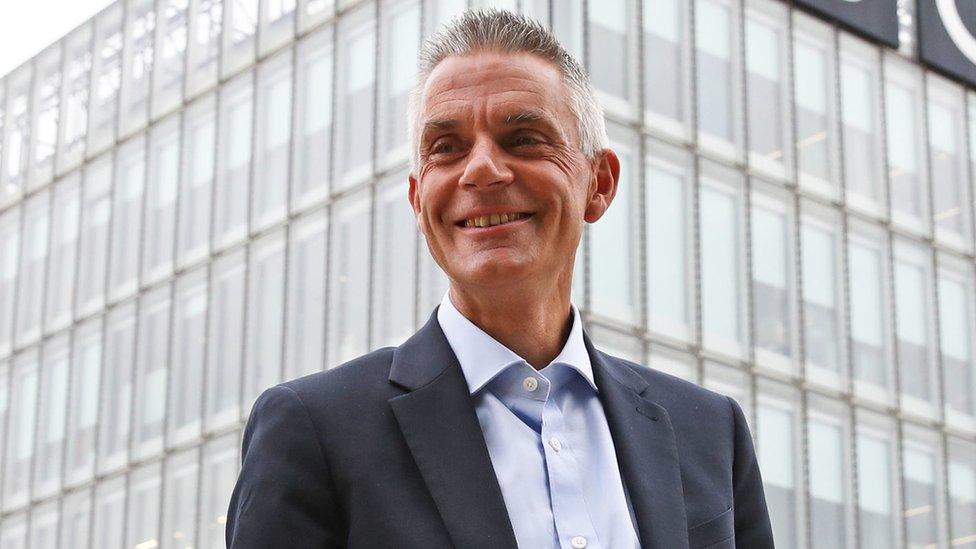BBC 'not here to beat Netflix', director general Tim Davie says
- Published
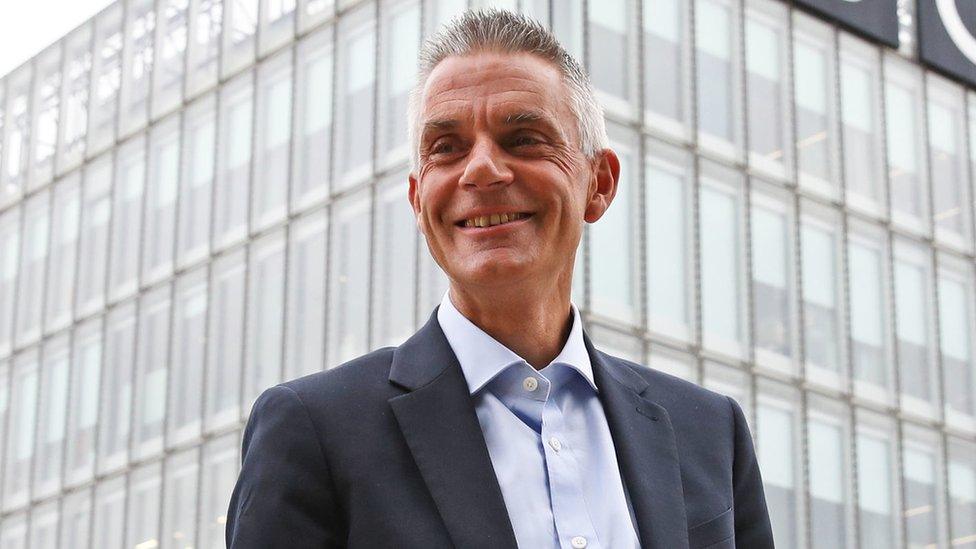
BBC director general Tim Davie has said the role of the corporation "is not to beat Netflix".
"We are not going to beat them," Mr Davie told MPs on the House of Commons Public Accounts Committee on Monday.
"We need to do something radically different."
Mr Davie noted his own "healthy paranoia about the sustainability" of the BBC's licence fee funding model, and said the corporation must be "distinctive".
The BBC is currently negotiating with the government about the price of the licence fee from 2022 until its current charter ends in 2027, and Mr Davie conceded that the BBC "has no inalienable right to exist".
'Differently shaped'
The committee is looking into the broadcaster's strategic financial management, income and spending.
The hearing came days after the BBC announced a plan to move some key departments and staff outside London to make the corporation more reflective of the UK.
Mr Davie said: "We are differently shaped [to streaming giants like Netflix]. We always have sat alongside competitors.
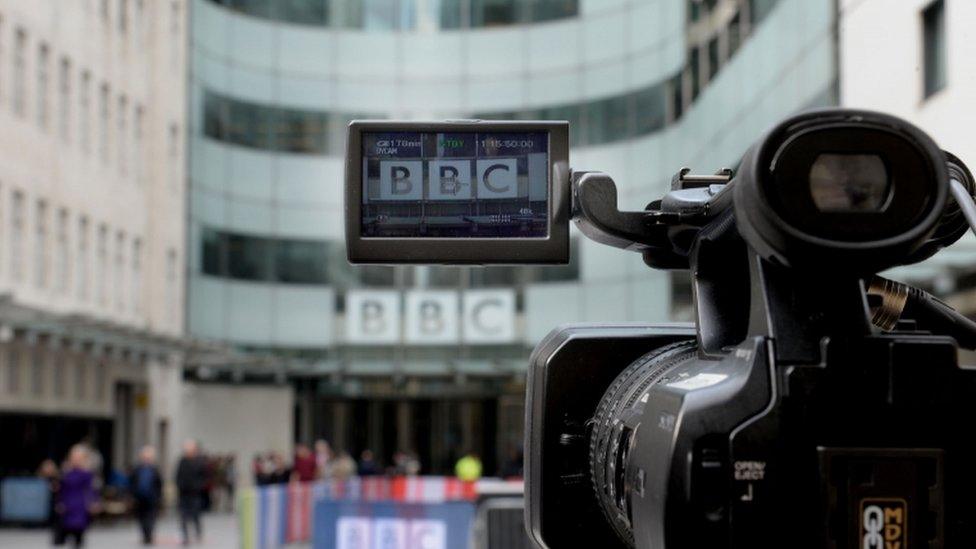
The BBC has announced a plan to move some key departments and staff outside of London
"The issue is the BBC needs to be highly distinctive, whether that be Bitesize education provision [or] locally made drama.
"I remain optimistic that we can retain reach and retain our value."
Mr Davie said the BBC made more than 20,000 hours of UK content last year compared with 200 made by US streaming services.
With output like regional news, local radio, orchestras and educational programming as well as "the occasional landmark natural history documentary or dramas", the BBC is "asymmetric to Netflix in so much of what we do", he said.
He also said: "We are not trying to make a paid subscription business work.
"We have a different purpose. I'm not running a business for profit, I'm running... an organisation for purpose."
'Area of opportunity'
But he did say the BBC could launch "further premium products" for the US market, which is "an exciting area of opportunity".
Also speaking at the hearing, the BBC's chief financial officer Glyn Isherwood said the Covid-19 pandemic had cost the organisation more than £200m.
The reasons included problems collecting the licence fee and a drop in commercial income, while extra staff and production costs totalled £60m, and a two-month delay in scrapping free TV licences for most over-75s cost £70m, he said.
That was all balanced out by a £125m savings programme and the fact the BBC did not have the costs of covering many major planned events in 2020.
'Fiercely proud'
Meanwhile, the issue of flags was raised after BBC Breakfast hosts Naga Munchetty and Charlie Stayt caused a stir last week by pointing out the size of a union jack in the background of an interview with a government minister.
Challenged by Conservative MP James Wild about why the flag did not appear in the BBC annual report, Mr Davie replied: "We're very proud of being British and we've been out there selling British abroad, and the UK and the UK creative industries for many years and generating strong exports on the back of it.
"I'm fiercely proud of it, and we've got the union jack on top of the building flying proudly."

Follow us on Facebook, external or on Twitter @BBCNewsEnts, external. If you have a story suggestion email entertainment.news@bbc.co.uk, external.
Related topics
- Published19 March 2021
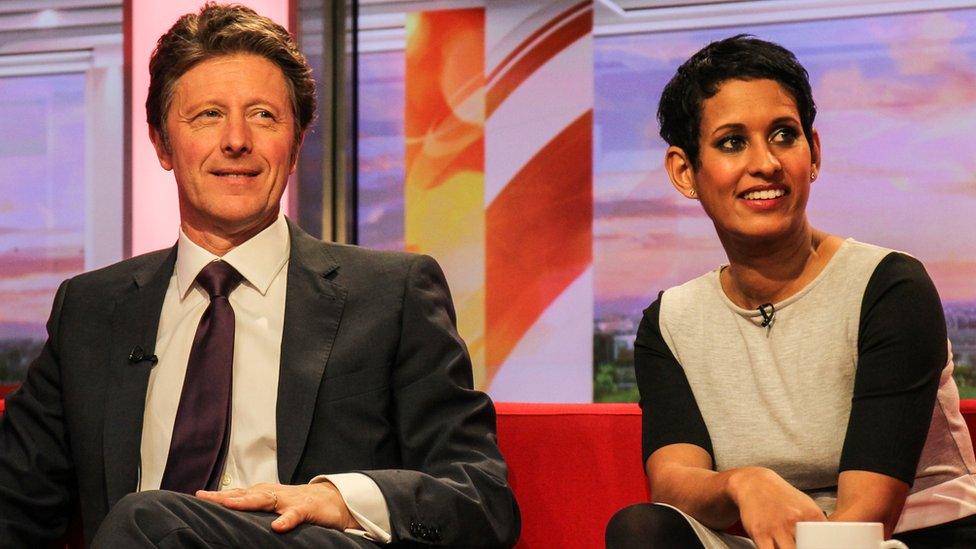
- Published18 March 2021
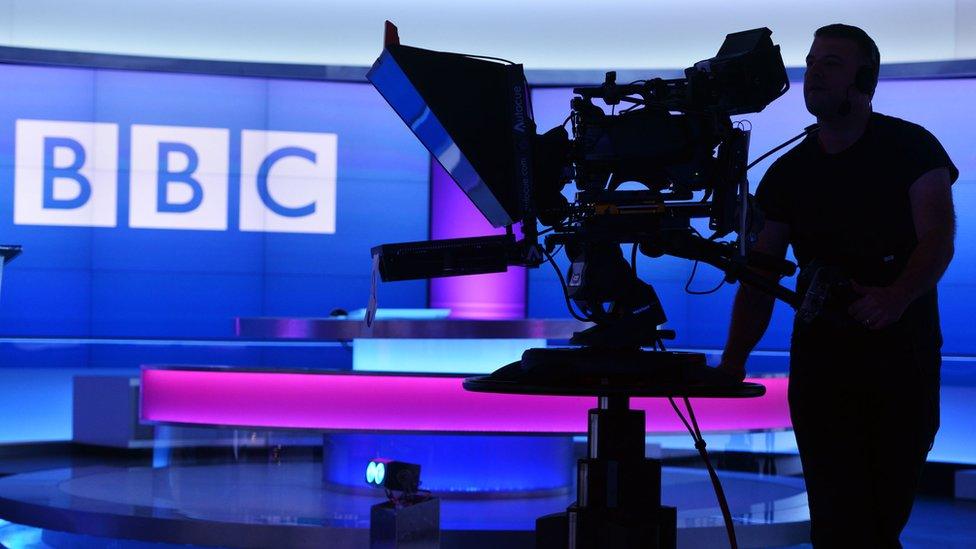
- Published2 March 2021
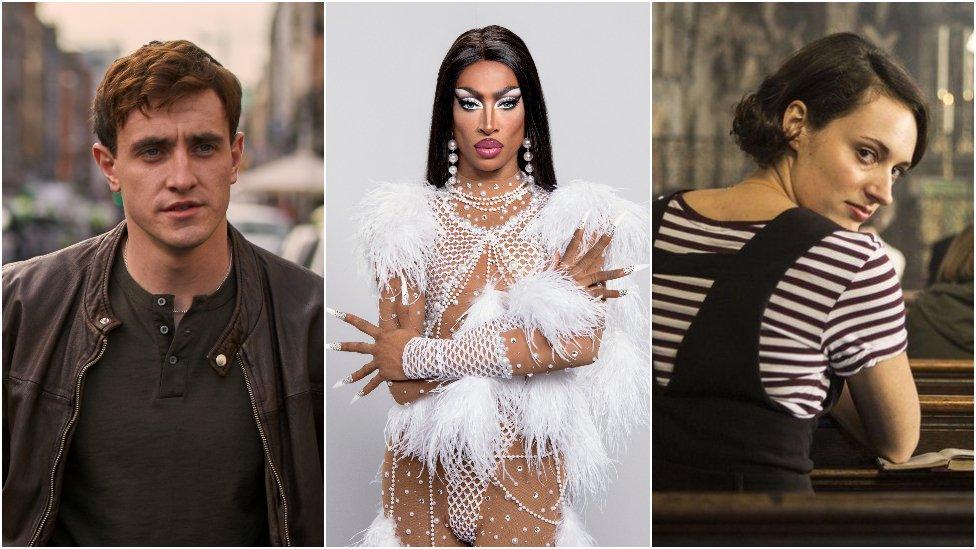
- Published17 February 2021
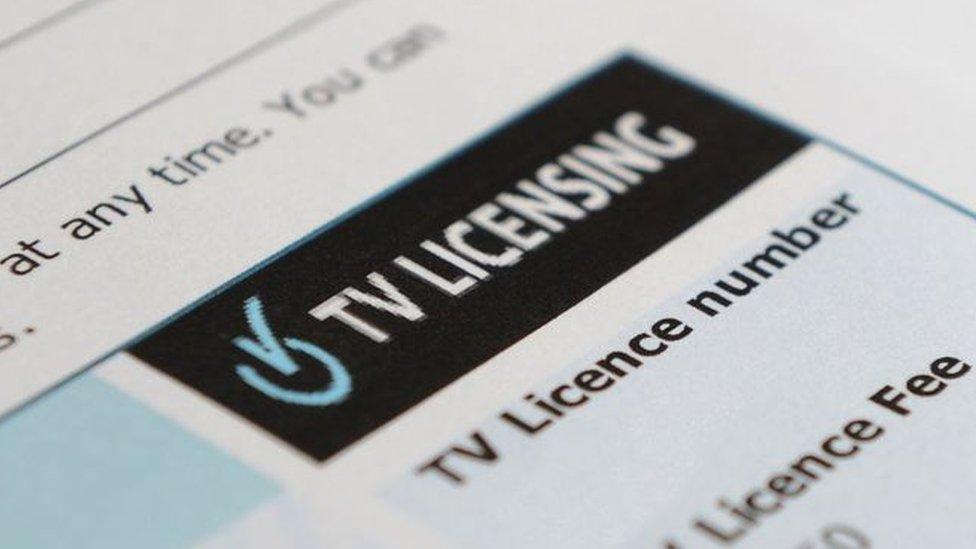
- Published29 September 2020
